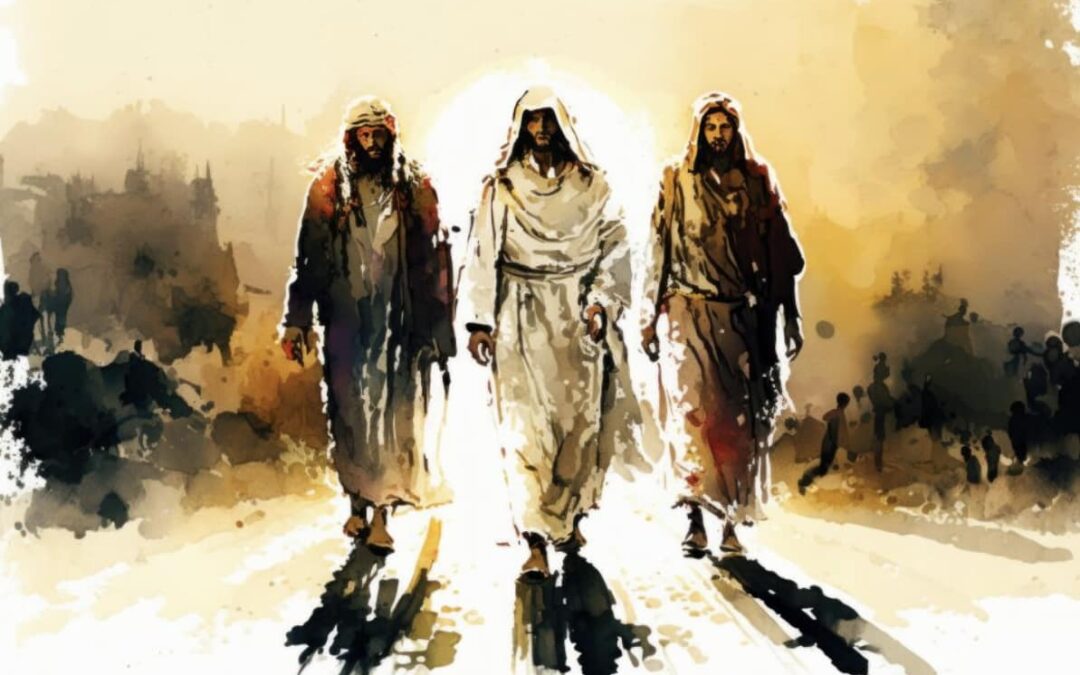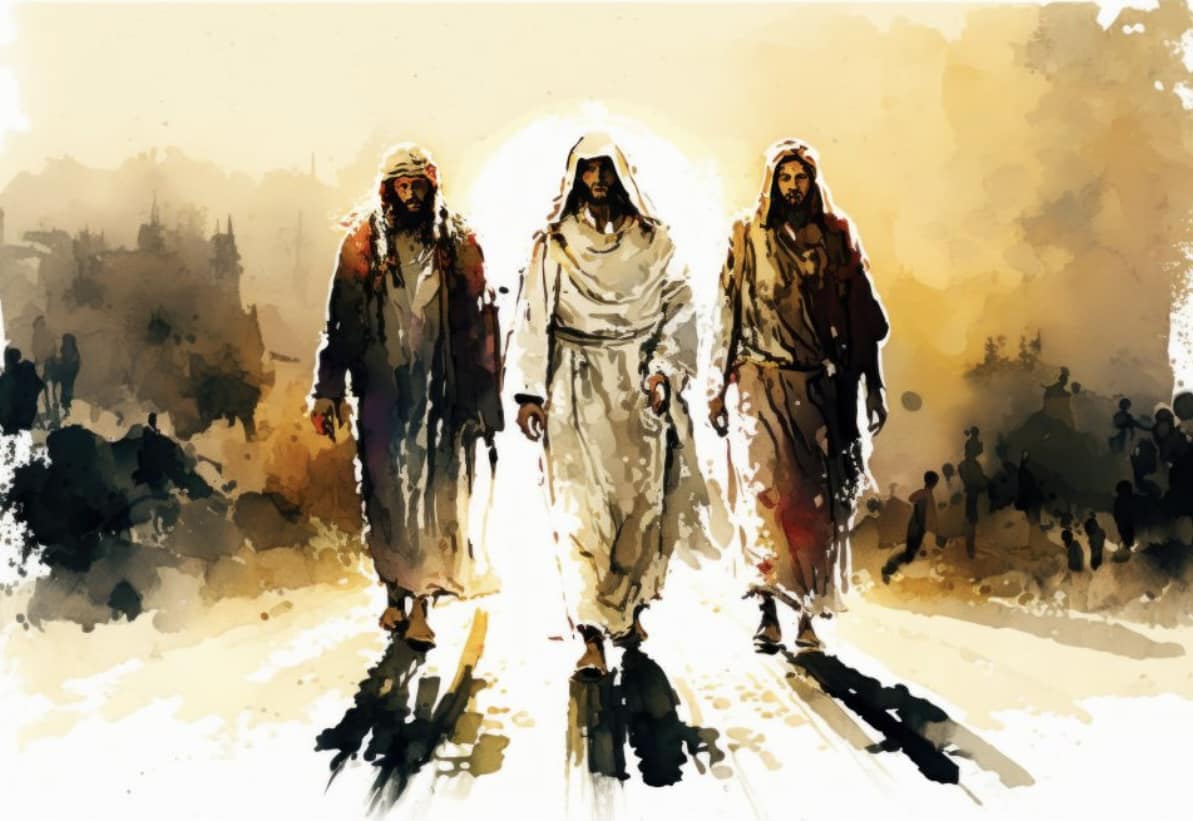“Do not think that I came to bring peace on earth. I did not come to bring peace, but a sword.”
These words are found in Matthew 10:34 and were explicitly stated by Jesus Himself. He immediately follows this statement with an assurance of domestic relational division (v35-36) and a challenge to one’s personal devotion to Him (v37-38). Though He was offering instruction to His disciples in this passage, it includes anyone who would call upon the name of Jesus Christ as Savior and Lord.
Luke 12:49-53 expands this theme with Jesus saying, “I came to send fire on the earth, and how I wish it were already kindled! But I have a baptism to be baptized with, and how distressed I am until it is accomplished! Do you suppose that I came to give peace on earth? I tell you, not at all, but rather division . . .”
Many consider such assertion contrary to Christ’s divine nature and/or too exclusive in design. Understandable, yet such thinking is borne of human reason in and of itself, for Christ came to reveal truth, of which there can be only One (Proverbs 14:12) and thus anything or anyone positing otherwise is counterfeit. The purpose of Christ’s first advent was to save us from the ill winds of reason devoid of true faith, revealing to humanity “True North,” and thereby destroying notions of relativism. Though humanity retains its free will, the “sword” that Jesus brings (signifying division, choice, judgment, and truth) ultimately shows us that there is only one real choice to make – either for or against our Creator. This dynamic demands division and conflict in any circumstance for there will always be some who choose wisely and others who choose poorly, and this simply due to the overall circumstance of a broken world wherein choice becomes a requisite construct of our reality and a waymarker to one’s destiny toward an eternity with or without their Creator God.
The Inclusivity and Exclusivity of Christ
When Jesus said He wished the earth was already kindled with the flames of judgment (Luke 12:49) He actively expressed His humanity in that He was desirous to hasten the necessary Judgment so as to quicken the circumstance of blessed fellowship (on the other side of that Judgment) with all who would choose righteously. Moreover, God’s Judgment is necessary as it is borne of His perfect justice, and those whom He loves He chastens (Hebrews 12:5-7). Some misinterpret the above passages to mean that Christ indulges in judgment because it is His duty and/or He may revel in it. This is negated, however, by Jesus’ statement in Luke 12:50 concerning His “distress” until His Father’s plan is accomplished. More to the point, Jesus’ perfect judgment and chastisement is meted out by necessity in that He is holy and fallen humanity is not. Herein we must be disciplined toward learning obedience to and enjoying the will of our heavenly Father. When we resist we may suffer hard discipline and chastisement meant to rebuke our rebellion and instruct us in righteousness. This is not unlike when a child disobeys the parents who know what is best for them and who level consequential discipline for the child’s own good and betterment regardless of how the child feels about it.
Some would label Jesus a pacifist, which by definition means a peacemaker or passive resister. While Jesus was not a peacebringer, as disclosed above, I agree that Jesus was a peacemaker but He was far from a passive resister. Many build their view of Jesus with oft recited and pleasingly peaceful verses like those found in Matthew 5:38-44, offering the ideals of “turning the other cheek,” “giving away whatever is asked of you,” and “loving your enemies.” However, when juxtaposing such verses with Matthew 10:34 and Luke 12:49-53 a different view of our Lord may emerge; and to the view of peacemaker should be added the attribute of righteous fervor! Jesus experienced anger, which is not a sin (Ephesians 4:26)–the sin rests in our irresponsible reactions and responses and failure to temper the God-given emotion. Anger may be harnessed and utilized properly on behalf of witnessing for the kingdom of heaven. For example, Jesus habitually and forcefully declared individuals, generations, and sects (Pharisees/Sadducees) as hypocritical and wicked (Matthew 16:3-6; Luke 11:37-54); He derogatorily called king Herod a fox (Luke 13:31-32); He classified the religious leaders as a brood of vipers (Matthew 12:34; 23:33); and He challenged the Jews’ own historical knowledge when they challenged His claims to be their Messiah (John 6:45).
And then there is the incident when Jesus overturned the tables of the moneylenders and merchants as He drove them with a whip out of the Temple (Matt.hew 21:12-13). It is certain He did not politely warn them before the action, considering the severity of the offense taken. Though neither did He lose His temper, rather He effectively employed His anger toward making a very poignant and memorable point. It is possible that the transgression of “temple marketry” was repeated only once, at least during Jesus’ earthly ministry. Notably, the Temple was destroyed in AD 70 per its prophetic doom (Matthew 24:1-2).
A final comparison to the flawed view of an overtly passive Jesus can be found in Revelation 19:11-21. Here the Lamb of God, upon His return to earth, sheds His suffering servanthood and reveals His true nature as the Lion of the Tribe of Judah, the Conquering Messiah, and the Warrior King of kings and Lord of lords! Although concerning the context of Christ’s second advent, He will bring peace upon His return, after He executes final judgment, “by the sword,” upon those who have chosen poorly (Revelation 19:15, 21).
Let us now choose rightly, celebrating both the inclusivity of Christ (for all are welcome to come to Him; John 3:16) and the exclusivity of Christ (for He is the only way, truth, and life, and no one comes to the Father but through Him; John 14:6). Indeed, there is no room for counterfeit in the kingdom of heaven.
The Sword and The State
A lesson to be winnowed from the sword=judgment/truth concept resides in the fact that all disciples of Christ have been entrusted to wield His sword, meaning that decisions are to be considered and settled upon the foundational truth of His Word, i.e. the sword of the Spirit. The Lord God has also entrusted (morally responsible) heads of state with His sword, ideally to represent sound diplomacy and law enforcement in the following context:
“Let every soul be subject to the governing authorities. For there is no authority except from God, and the authorities that exist are appointed by God. Therefore, whoever resists the authority resists the ordinance of God, and those who resist will bring judgment on themselves. For rulers are not a terror to good works, but to evil… For he is God’s minister to you for good. But if you do evil, be afraid; for he does not bear the sword in vain… he is God’s minister, an avenger to execute God’s wrath on him who practices evil” (Romans 13:1-4).
“Therefore submit yourselves to every ordinance of man for the Lord’s sake, whether to the king as supreme, or to governors, as to those who are sent by him [king, etc] for the punishment of evildoers and for the praise of those who do good. For this is the will of God, that by doing good you may put to silence the ignorance of foolish men – as free bondservants of God, yet not using liberty as a cloak for vice…” (1 Peter 2:13-17)
Governments are often referred to in Scripture as “beasts” because they tend to devour their subjects (especially when ruled by ungodly leaders), but in a world of chaos and brokenness governments act as bringers of order, even if only temporal. They are also purposed to punish evildoers and encourage good, and “good” is to be understood as a part of the “greater good” of humanity in light of truth. Non-Christian governments (and individuals) can live peaceably while recognizing basic human rights issuing from an ideal of decency or humaneness, and Christian governments (and individuals), recognizing the same, must respect the aforementioned rights and ideals of others even if not Christ-centric; for we must honor all people (1 Peter 2:17). And to honor does not mean to condone.
However, when such ideals are violated, the systems of national security, law enforcement, public health services, and emergency agencies should assist in maintaining and restoring an orderly peace. When governments suffer impotence or corruption and trend toward evil it is the responsibility of individuals within said government or nation to act on behalf of the greater good, thus discerning the right course of action for their own sake and/or the sake of their government (this may include democratic elections or coups–not all coups are violent or evil). When governments become predominantly or entirely evil and rob their own citizens of basic human rights and/or threaten other governments/nations, the time has arrived for a “good” government/nation to become the minister of God and execute His judgment against an “evil” one in order to preserve the “greater good.” Judgment in this context can equal war as attempts at diplomacy fail. Some wrongfully reject this reasoning as a justification for God-sanctioned war. Yet Scripture provides a very simple template in that Almighty God has authorized governments to wield His “sword” to preserve His truth and order, not the truth and order of human rulers who would abuse such authority. And, yes, war is unfortunately a tool God has used throughout history, even modern history, because of the brokenness of humanity.
This is not insisting that “just” wars are Godly endeavors, it merely alludes to the fact that governing authorities have permission to act on God’s behalf in defense of the greater good, not their own personal designs. And though humanity’s imperfection will stain decisions and consequences at times, God’s sovereignty usurps our limited autonomy. In fact, His sovereign influence can indeed be witnessed on occasion: consider that the American Revolution birthed and forged a grand nation of religious and personal liberty; the War of 1812 preserved the American nation; and the Civil War ultimately united a fractured America (mostly). God will work through imperfect means to bring about His perfect endgame, the most powerful example of which is the passion of the Christ – truly, such devastation brought so great a salvation!
The Sword of the Spirit Sifts Human Hearts
Certainly not all wars are just, for there are and have been those monsters of humanity who terrorize, murder, and conceive of evil machinations in blatant dismissal of a greater good. But who determines which government or nation is good or evil, likewise its intentions? The answer is uncomfortably simplistic, as human reason effectively clouds the clarity of Scripture with a shroud of ambiguity. The answer: Jesus Christ reveals what is good and what is evil through the authority of His Word. If a government or individual violates the template of truth, there is a standard of judgment spanning a spectrum from mild correction to the taking of human life, i.e. capital punishment (which remains in effect per the Noahic Covenant, Genesis 9:5-17, and is reinforced by Jesus’ words in Matthew 18:6).
So the answer, then, is simple. The difficulty rests in allowing the Word of God proper ascendancy in every arena of life, from personal discipleship to affairs of state, domestic and foreign. Moreover, the difficulty is by design in that it sifts the disciplined from the apathetic; the same dynamic applies to the art of prayer, exposing the importance of (individuals and governments) establishing themselves upon the wisdom of God found in His Word and through intimate counsel with Him.
War is not good or ideal, nor is suffering or death. Nevertheless, each of these remain a clear and present reality in our fallen situation. And Christ’s own proclamation that there would be “division” is proven by the presence of so much evil. So let us not use our liberty as a cloak for vice, thus rendering God’s grace as a whim. Rather, let us use our liberty resourcefully and grow in the grace and knowledge of Jesus Christ, rightly discerning truth so that we do not bear His sword in vain; for He removes kings and raises up kings and, like Daniel, He may require our service to a king He has raised up (Daniel 2:20-23).


